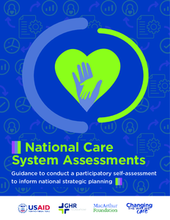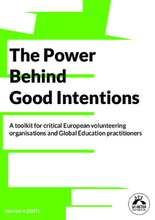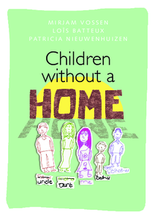Displaying 2221 - 2230 of 14391
An overview of key considerations and steps to developing a national strategy for care reform
This toolkit includes guidance for implementing the care system assessment, the assessment framework itself, and corresponding training materials. Together, this guidance document, the framework and training resources are intended to support stakeholders to plan and conduct an assessment, use assessment results to develop a national strategy and, over time, monitor progress in strengthening national care systems.
This is an assessment framework with a series of assessment questions for countries interested in furthering care systems. It is intended as a participatory self-assessment and planning exericse to continue to improve national care systems. This assessment information can then be used to develop strategy and action planning towards improving systems of care. This document should be used together with CTWWC's Care System Assessment Guidance document.
This guidance document is intended to support countries to assess nationalcare systems using the Care System Assessment Framework developed and implemented by Changing the Way We CareSM. This document is part of a toolkit that includes the assessment framework and corresponding training materials. Together, this guidance document, the framework and training resources are intended to support stakeholders to plan and conduct an assessment, use
assessment results to develop a national strategy and, over time, monitor progress in strengthening national care systems.
This toolkit is the outcome of four seminars organised by the Service Civil International (SCI), and calls for all volunteering organisations in Europe to take a strong stand against racism and colonialism.
This report contains the findings from a nationally representative study conducted by Barna Group of U.S. Christians to better understand U.S. Christian beliefs around and support for orphanages, children’s homes and other forms of residential care for children. It includes data on the amount of funding given to residential care, as well as visits and short-term missions to orphanages.
Millions of children in developing countries are unable to live at home for a variety of reasons. The fate of these children is a concern for many people. Some start projects, volunteer with children or support an orphanage. This guide is for them. It is also important for organisations that do not specifically focus on vulnerable children. Because children without sufficient paren-tal care are everywhere: in schools, villages and poor areas in big cities.
Research has shown the harm of orphanage care on children’s health, development and wellbeing and how orphanage volunteering is working to perpetuate these institutional systems which separate children from their families and communities. There is now a global movement to end both practices. These key policy recommendations were published as part of the "Put Children First: End Orphanage Care" campaign.
Providing effective mental health services to unaccompanied children released from federal immigration custody is both critically important and incredibly challenging. Developed by children’s rights attorneys and mental health experts on trauma and immigration, this Guide is grounded in the voices and experiences of unaccompanied children.







